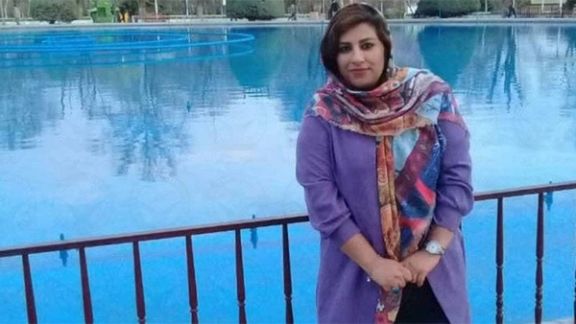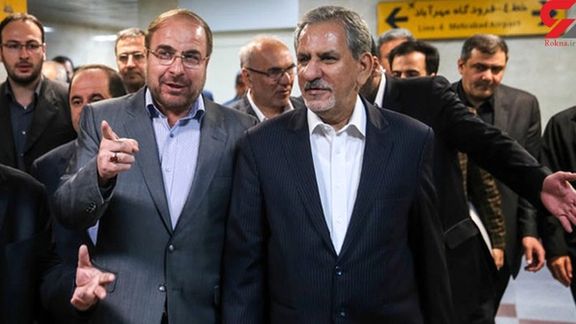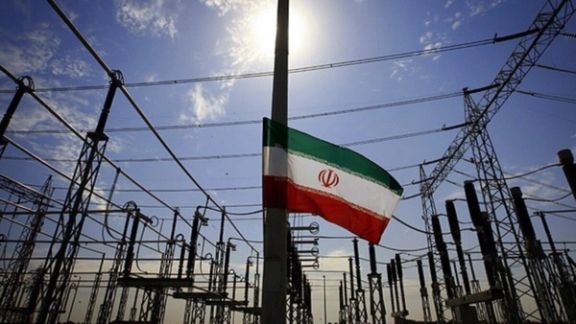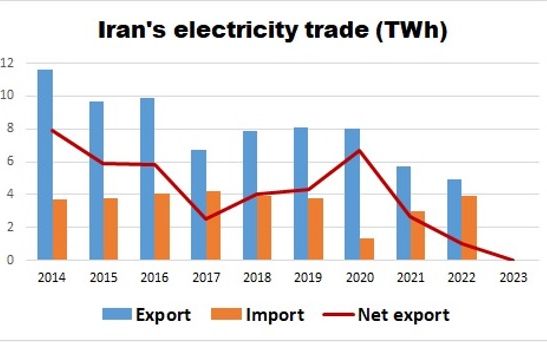Iranian Political Prisoner Slams 26-Year Prison Sentence

Political prisoner Mahboubeh Rezaei, has reacted to her 26-year jail term in Evin Prison under charges of undermining national security with a vow to continue her activism.

Political prisoner Mahboubeh Rezaei, has reacted to her 26-year jail term in Evin Prison under charges of undermining national security with a vow to continue her activism.
Following her sentencing, she said: "Whether in prison or outside, I will continue my path alongside the Iranian people, and I will not cease my efforts until the freedom of our homeland."
Last week, peaceful activists Rezaei, Samaneh Norouz Moradi and Reza Mohammad Hosseini, were collectively sentenced to a total of 61 years and 10 months by Branch 28 of the Revolutionary Court in Tehran. Their charges included "membership in opposition groups aiming to undermine national security."
The issued verdict states that if the sentence is confirmed in the appeals court, the enforceable part would be 7 years and 9 months for Mahboubeh Rezaei and Reza Mohammad Hosseini, and 6 years and 3 months for Samaneh Norouz Moradi.
In her letter, the political prisoner proudly announced, "Although my youth is spent in prison, I am not disheartened. Love for our homeland has rendered the prison's anxieties meaningless and has kept hope alive more than ever. In Evin Prison, I will be alongside other sisters and brothers who are fighters for freedom."
Mahboubeh Rezaei was first detained in May 2017 and was released from Adelabad Prison of Shiraz in June 2022. During her previous incarceration, she was exiled to Bushehr Prison, south of Iran and later returned to Shiraz after nine months.
In 2021, while in Bushehr Prison, she spoke about the assault on female prisoners in an audio message, and a few days later, her phone access was temporarily cut off.

Iranian rapper Toomaj Salehi has been released from prison after over a year of imprisonment, including 252 days in solitary confinement, upon posting bail.
The rapper's release was announced on his social media page, where an image of Salehi’s post-release was shared on the X. The page issued a statement, declaring, "Toomaj Salehi, the son of Iran, after enduring 252 days of solitary confinement and a total of one year and 21 days of unjust imprisonment, is finally released on bail from prison to rejoin his large family."
"I thought the loneliest moment for a person was being under the torment of solitary confinement; now I realize that the loneliness of being released from it is even more bitter," Toomaj said first after freedom, according to it official account.
Expressing happiness for “the end of this unjust captivity,” the post said Toomaj will seek medical care to treat the physical injuries he suffered in prison.
During his incarceration, Salehi's official account reported that he had sustained injuries from torture, including severe swelling and bleeding in his eyes, a fractured tooth, and injured fingers.
In July, Salehi dodged a death sentence and was instead sentenced to over six years in prison. He was convicted of offenses related to "corruption on earth," which includes violations of religious morality.
Since Salehi's detention in November 2022, both Iranians within the country and those abroad had been advocating for his freedom in various gatherings. The international community also rallied behind the protesting rapper, with numerous organizations expressing their support. Several political figures in Western countries took up the cause, advocating for Salehi's release.
Salehi's arrest took place amid uprisings against the regime, during which he used his social media platforms to support popular protests. It is the second time Salehi has faced detention, with a previous incident occurring in September 2020 after performing the song "Buy a Rat Hole." On that occasion, he was released after a short period of time.
Throughout his career, Salehi has addressed critical issues such as corruption in the Islamic Republic, workers' strikes, and the execution and imprisonment of regime opponents through his musical works.

Iranians are expressing outrage on social media over the renaming of two beloved pre-Islamic festivals, viewed as an attempt to erode "ancient Iranian culture."
This week, Iranian media reported that the Supreme Council of Cultural Revolution (SCCR) has chosen to rename certain events on the official calendar of the Islamic Republic, including the festivals of Yalda and Charshanbeh Souri, both of which predate the Islamization of Iran in the 6th century AD.
The Supreme Council of Cultural Revolution, comprising several appointees of Supreme Leader Ali Khamenei, is tasked with neutralizing external cultural influences and ideologies, particularly Western, and ensuring that education and culture align with Islamic values.
Social media users vow to celebrate the two festivals "with even more splendor" in defiance of the regime. They have also shared numerous jokes about the lengthy and irrelevant new names assigned to their cherished festivals.
They have also highlighted the regime's past attempts to erase the country's history by renaming numerous streets, buildings, and even cities and provinces, like Shahi and Kermanshah, often due to their association with the monarchy and the deposed royal family. However, most people have persisted in using the old names until now.

"At the end of the day, we will still call these occasions Yalda night and Charshanbeh Souri. Are they going to install CCTV and bring in their plainclothesmen to our homes to make sure we are not doing so?" one of the many tweets about the renaming of festivals said, reflecting the sentiment surrounding the renaming of the festivals.
For over four decades since the early years of the Islamic Revolution, the religious establishment and Islamic revolutionaries have opposed the celebration of ancient festivals, including Nowruz (Persian New Year). Instead, they have sought to substitute them with Islamic calendar events such as Eid al-Fitr, Eid ul-Adha, Mab’ath (the beginning of the Prophet Muhammad’s mission), and the birthdays of the Prophet and Shiite Imams.
Most Iranians, even many religious families, however, have not forsaken their beloved ancient festivals and continue to celebrate them alongside religious occasions.
The first of the two festivals renamed by the Council, Yalda, also known as Chelleh Night, traditionally takes place on the longest and darkest night of the year.
This Winter Solstice festival has been observed by Iranian peoples and others in the region since ancient times. People come together at home to enjoy special foods, play music, read poetry, tell fortunes, and engage in various customs that vary across regions.
The SCCR has now renamed the day as the "Day of Promotion of the Culture of Hosting and Connecting with Relatives."
The second festival, Charshanbeh Souri, celebrated on the evening of the last Tuesday of the year just before the Nowruz holiday on March 21, involves similar customs of food, music, fortune-telling, poetry recitation, and the distinctive tradition of lighting small bonfires on the streets and jumping over them.
The hardliner religious establishment, in particular, strongly disapproves of the practice of lighting fires during Charshanbeh Souri. To them, this act evokes memories of the pre-Islamic religion of Iran, Zoroastrianism, where the lighting and tending of fire played a significant role in worship rituals. They view this association with fire as a form of paganism and consider it as "worshipping of fire."
The Council has decided to rename Charshanbeh Souri as “Day of Honouring Neighbors”.
Sizdah-be-dar, celebrated on the 13th day of the Persian calendar (April 1/2), is another ancient festival with uncertain origins cherished and observed by most Iranians, despite disapproval from the religious establishment. This festival, during which everyone leaves their homes to picnic in the open air, was renamed "Nature Day" years ago.
The public's reaction to the renaming of the two festivals was so strong that the Council's spokesman, Abbas Mirza Hosseini, had to deny the removal of the names of ancient festivals from the official calendar. He claimed that the new names were only complementary and emphasized the "national identity and Islamic-Iranian culture and civilization."

Reza Morad Sahraei, the Minister of Education in the Islamic Republic of Iran, insists on the need for gender-specific school curricula.
In an interview on Saturday, Sahraei said that there is currently no plan for gender segregation on the agenda of the ministry of education. He confirmed that some textbooks will change.
He said textbooks for subjects such as Life Skills, Social Studies, and Religious Studies are already based on students' gender.
Last week, Sahraei had stated, in accordance with the Fundamental Transformation of Education document, textbooks should be customized differently for girls and boys. He emphasized the necessity of institutionalizing a culture of “modesty” throughout society.
Sahraei went on to emphasize that the Islamic Republic rejects both an "Eastern perspective" and a "feminist perspective" concerning women and girls, deeming the latter as "deviant."
His statements advocating gender-specific textbooks have triggered widespread negative reactions among experts in the field.

Iran’s former vice president under Hassan Rouhani, Es’haq Jahangiri, has been sentenced to 12 months' imprisonment for “false accusations against the parliament speaker.”
The court's recent verdict sentences Jahangiri to “four months of imprisonment for defamation and eight months for spreading falsehoods,” but considering Jahangiri's legal position, the prison term has been commuted to a cash fine of 440 million rials (less than 1$,000).
The sentence, based on a complaint filed by Parliament Speaker Mohammad Bagher Ghalibaf, is preliminary and subject to appeal.
Earlier this year, Mohammad Saeed Ahadian, the political and media assistant to the Parliament Speaker, referred to Ghalibaf's complaint against Jahangiri in a tweet, explaining that “Ghalibaf had filed a complaint in 2017 due to false statements made by Jahangiri.”
Simultaneously, media reports claimed that Ghalibaf's complaint against Jahangiri was related to the debates during the presidential elections in 2017. Mohammad Bagher Ghalibaf, one of the two main conservative candidates, targeted the Rouhani administration in his sharp attacks. The heated exchanges between Ghalibaf and Jahangiri led to intense debates.
Both Jahangiri and Ghalibaf withdrew in favor of their respective main faction candidates at the end of the debates. Ghalibaf supported Ebrahim Raisi, while Jahangiri cast his vote in favor of Hassan Rouhani.
The reopening of the old case by Ghalibaf is viewed by observers as an attempt to attract public attention on the eve of the upcoming parliamentary elections scheduled for the winter.

An Iranian official has acknowledged that the country’s net electricity export has reached zero, due to internal power deficit.
Official statistics indicate that during the last three years, Iran’s electricity exports were plunging gradually, while imports increased.
Mohammad Elahdad, the Deputy for Transmission and Foreign Trade at the Energy Ministry, said on November 15 that now the net electricity export decreased to zero.
This marks the first time in decades that Iran's electricity exports have equaled the country's imports. Iran imports electricity from Armenia, Azerbaijan, and Turkmenistan while exporting to Iraq. On Saturday, Arash Kordi, the managing director of Iran's electricity company Tavanir, claimed that the country is doubling the import of electricity from Turkmenistan.
Despite having net electricity exports of 8 terawatt-hours (TWh) a decade ago, this figure dropped to just over 1 TWh last year and has now reached zero.
The are reasons behind the decline in electricity exports. Domestic consumption increases at a high rate, because the government sells electricity at rock-bottom prices to consumers in a decades-old subsidy scheme. Inertia and fear of protests prevents the government from adjusting prices. Another major reason is the inefficiency of a government-controlled economy that breeds mismanagement and the expansion of the sector. Years of foreign sanctions have also played their role.
Over the past few years, Iran has struggled to meet its electricity generation growth targets, facing a shortfall of 14 megawatts (MW) during peak summer consumption.
Recent statistics from the Ministry of Energy indicate that only 20% of Iran's electricity generation growth targets were achieved in the first seven months of this fiscal year, that started March 22.
On the other hand, a big part of newly launched power plants has very low efficiency. If this trend continues, the country is likely to become a net electricity importer in the coming years.
The Ministry of Energy has recently omitted the monthly reports on Iran's electricity imports and exports, suggesting that the balance reaching zero is the reason behind this decision.

Iran, in exchange for importing electricity from Armenia, provides gas to this country (1 cubic meter of gas for every 3 kilowatts of electricity). However, for the imported electricity from Azerbaijan and Turkmenistan, Iran pays in currency.
The funds from Iran's electricity exports to Iraq are deposited into an account at the Trade Bank of Iraq in dinars. Due to Iran's limited imports from Iraq, approximately $10 billions of Iran's earnings from electricity and gas exports to Iraq over the past few years were effectively blocked in the Trade Bank of Iraq.
Until the middle of this year, Iran was only allowed to use these funds for importing non-sanctioned goods from Iraq, but the US government has issued sanctions waivers, allowing the Islamic Republic to transfer these funds to Oman in euros for importing non-sanctioned goods from third countries. It is still unclear how long Iran will continue its electricity exports, given the severity of the country's shortages.
For the current fiscal year (starting March 22), Iran had aimed to launch of over 5,000 megawatts of new power plants. However, in the first seven months (March-October), only 1,020 MW of power plants have been commissioned, with the majority being gas-powered plants with a modest efficiency of 30%. Iran has inaugurated only 33 MW of solar and wind power plants as well as 116 MW of relatively more efficient "combined cycle" power plants.
Although the country's power generation capacity is 92,000 MW, the operational capacity of the national grid is only around 71,000 MW. This means that approximately 23% of the country's power generation capacity is wasted due to aging and obsolescence.
Iranian authorities have repeatedly announced that the country faces a deficit of 14,000 MW during peak summer consumption.
Moreover, thermal power plants using mazut, diesel, and gas account for over 93% of Iran's total electricity generation. About three-quarters of Iran's thermal power plants are gas or steam-based, with a very low efficiency rate of around 30%. Iran had targeted converting these power plants to "combined-cycle" types with 45% efficiency for two decades ago but has not succeeded in this endeavor. The reasons include economic mismanagement and inefficiency coupled with various types of foreign sanctions.
Additionally, based on statistics from the Ministry of Energy and the Research Center of the Parliament, about 13% of the country's generated electricity is lost in the aged transmission and distribution network.
In comparison, Iran, only in the transmission and distribution network, loses as much electricity as half of the country's household consumption. The amount of electricity loss in the country's aged network is approximately 48 TWh annually.
Dr Umud Shokri, Energy Strategist and Senior Visiting Fellow at George Mason University
Dalga Khatinoglu, Azerbaijani expert on Iran’s energy issues